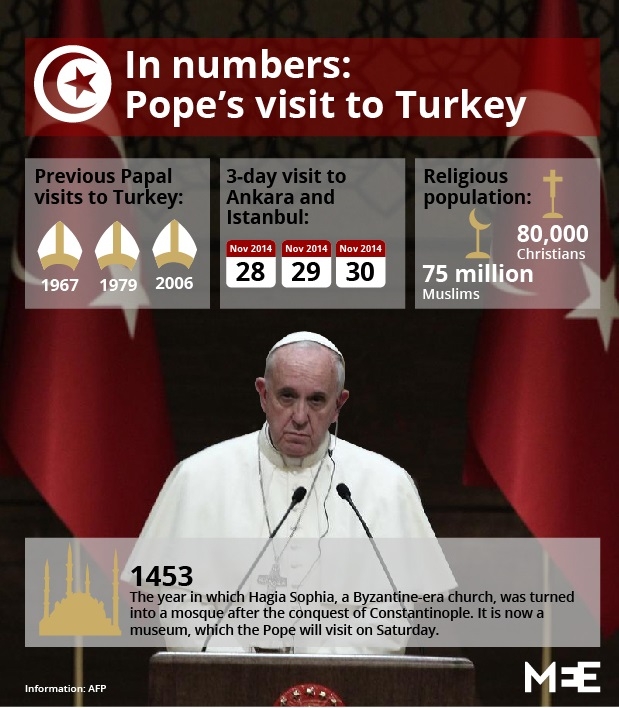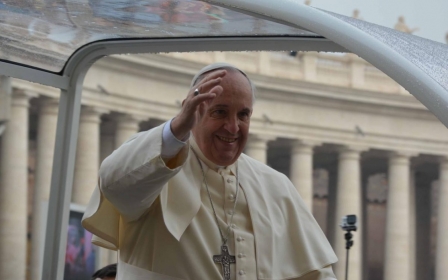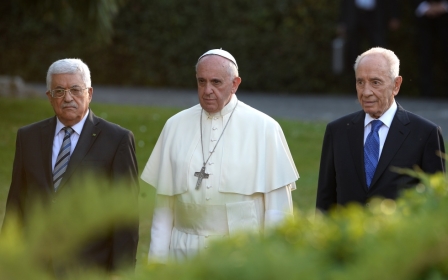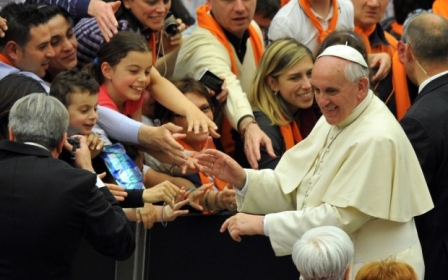Pope Francis: We must not 'shut our eyes to the suffering' in the Middle East
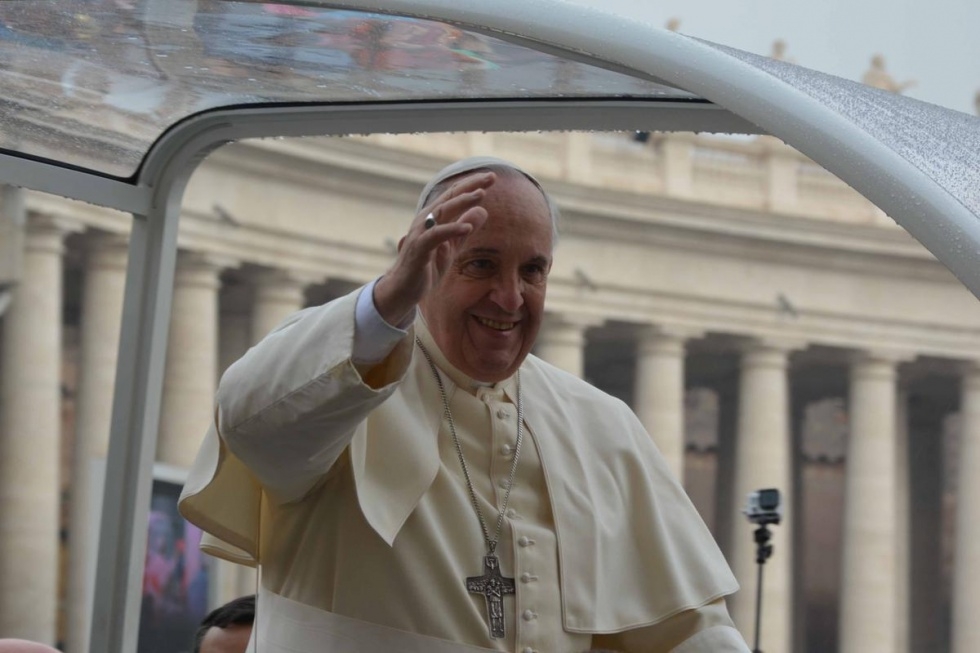
Turkish President Recep Tayyip Erdogan and Pope Francis have jointly called the world’s attention to the unfolding political and humanitarian crises in the Middle East at a press conference marking the beginning of tour of the country by the Catholic Church leader.
Speaking at a press conference in Ankara, Pope Francis said hundreds of thousands of people were being affected by terrorism worldwide, especially in Syria and Iraq.
"The most basic humanitarian rules are being violated and mass exiles of minorities are taking place," the Pontiff said. "Not only Christians and Yazidis, but also hundreds of thousands of people are abandoning their homes just to survive and be able to practice their religions."
He praised Turkey's efforts to shelter refugees from conflict zones.
"Turkey has showed great generosity and received many migrants," the Pope noted.
Pope Francis also said the Middle East had been the scene of wars for many years, "with brothers murdering brothers".
"We must not shut our eyes to the suffering there," he added.
In addition to the Pope's comments, Erdogan said that Israeli "state terrorism in Gaza goes unnoticed".
The Turkish president said he and the pope had common views on almost every subject they discussed, including how to combat terrorism.
"The Pope's visit is very important, given that our region and the world are going through a difficult time right now," he said.
The pope arrived in Ankara Friday afternoon to begin his first three-day official visit to Turkey.
The spiritual leader of the world’s one billion Catholics first visited the Anitkabir mausoleum, the gravesite of Turkey's founding father, Mustafa Kemal Ataturk.
The 77-year-old Argentine pope will move to Istanbul on Saturday and Sunday, visiting key sites of the city's Byzantine and Ottoman heritage as well as meeting the Orthodox Ecumenical Patriarch Bartholomew I.
The trip appears less controversial than the last by a pontiff to mainly Muslim Turkey - the visit by Pope Francis' predecessor Benedict XVI in 2006 which was overshadowed by remarks he had previously made deemed to be anti-Islamic.
But the security of the Pope will be paramount for the Turkish authorities.
Around 2,700 policemen, including snipers on buildings were posted along the entire route the pope took to the Presidential Palace; a number that will rise to 7,000 in Istanbul.
The Pope will visit in Istanbul Saturday the Hagia Sophia, the great Byzantine church that was turned into a mosque after the conquest of Constantinople in 1453 and now serves as a museum.
Mosque visit
Later in the day he will visit the Sultan Ahmet mosque, known as the Blue Mosque, one of the greatest masterpieces of Ottoman architecture.
When Benedict XVI visited the mosque in 2006, he assumed the Muslim attitude of prayer and turned towards Mecca in what many saw as a gesture of reconciliation.
The Vatican later made clear he had not actually prayed in the mosque but was "in meditation" and Pope Francis could make a similar gesture.
The visit has hardly sparked waves of enthusiasm in Turkey, and previous papal trips to Turkey have been greeted moaning about the additional traffic congestion in Istanbul's already clogged streets.
Turkey's own Christian community is tiny - just 80,000 in a country of some 75 million Muslims - and also extremely mixed, consisting of Armenians, Greek Orthodox, Franco-Levantines, Syriac Orthodox and Chaldeans.
While only the Chaldeans and Levantines follow the pope in any numbers, Francis is expected to raise his concern about Christian communities throughout the Middle East.
Francis will be the fourth pope to visit the country after Benedict in 2006, John Paul II in 1979 and Paul VI in 1967.
New MEE newsletter: Jerusalem Dispatch
Sign up to get the latest insights and analysis on Israel-Palestine, alongside Turkey Unpacked and other MEE newsletters
Middle East Eye delivers independent and unrivalled coverage and analysis of the Middle East, North Africa and beyond. To learn more about republishing this content and the associated fees, please fill out this form. More about MEE can be found here.


